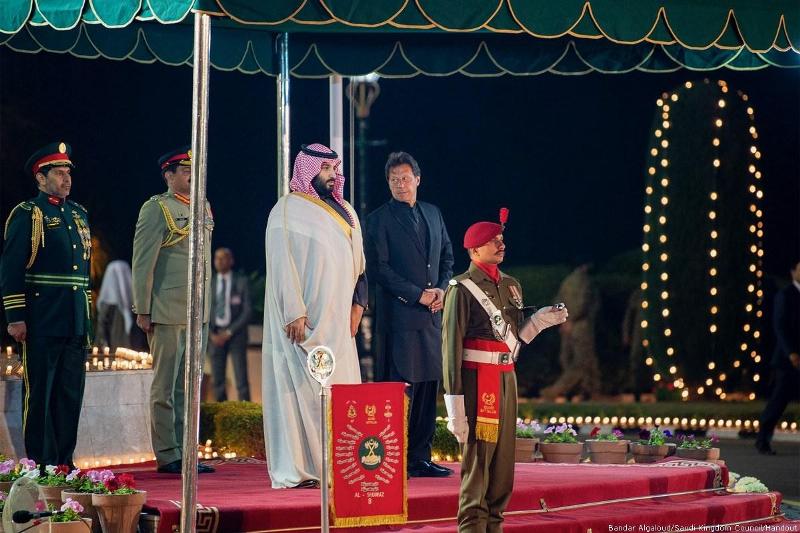During his visit to Pakistan, Saudi Crown Prince Mohammed bin Salman, declared on 17 February 2019 that the first phase of a $20 billion investment in Pakistan has been completed while more investments will be made in the future. Advisor to the Prime Minister on Commerce, Abdul Razak Dawood, said on 18 February that Saudi investment in Pakistan is vital and highly significant for positive development of Pakistan’s economy.
Comment:
Successive regimes have claimed that Pakistan cannot progress without the help of wealthiest nations. So Pakistan has been receiving all sorts of economic aid, investments, packages and loans but still faces severe economic problems, with its people drowning in poverty. The previous Raheel-Nawaz regime made similar claims about the China Pakistan Economic Corridor (CPEC). It claimed that the investment of more than 50 billion will not only be a game changer for Pakistan, but for the whole region. Although about 30 billion dollars have been spent on CPEC so far, Pakistan still faces a deep economic crisis. Almost one third of its annual budget is utilized for debt servicing and three quarters of that is on interest payments. Due to a deficiency in domestic industry, Pakistan remains heavily dependent on imports for essentials such as agricultural machinery and engines. Due to membership of the IMF, Pakistan is obliged to maintain large dollar reserves, compounding its problems, through pressure to devalue its own currency, take on dollar loans and open its economy to private investors from the East and the West.
And now the Bajwa-Imran regime is in office claiming that Saudi investment is the game changer. One wonders that if the CPEC, which is a much bigger project than the Saudi investment, did not create prosperity, then how will the Saudi? More generally, billions have come into Pakistan as Foreign Direct Investment over the last three decades, but the situation of Pakistan’s economy has gone from bad to worse. Foreign Direct Investment benefits the large capitalists who gain ownership of the large sources of revenues, such as transport, construction, mineral and energy interests. It brings in dollars – in the short term but in the long term compromises the state treasury because it does not have access to sufficient funds from large scale industry, energy and minerals to meet the needs of the people. So it resorts to even more FDI and interest based loans which perpetuates the downward spiral.
The re-establishment of the Khilafah (Caliphate) on the Method of the Prophethood is the actual game changes that the Muslims need. Islam uniquely divides property in to private, state and public property. Energy resources like oil, gas and electricity are considered public property. Public property can neither be privatized nor nationalized. So, its immense revenues must be spent on the people’s affairs, under close supervision of the state. Islam’s ruling on company structures limits the financial ability of private companies to dominate capital intensive sectors of the economy, such as large-scale transport and construction. So, the state naturally plays a dominate role in these sectors, granting substantial revenues for the state treasury. Moreover, Islam has mandated that currency is backed by gold and silver, which have their own intrinsic value, providing stability to international trade and stabilizing domestic prices. It is the Khilafah alone that will break the begging bowl and the humiliation that comes with it. It is upon the Muslims to abolish Capitalism and establish the Khilafah. Allah (swt) said, وَمَنْ أَعْرَضَ عَن ذِكْرِي فَإِنَّ لَهُ مَعِيشَةً ضَنكًا “And whoever turns away from My Reminder (Dhikr) assuredly for him is a straitened life” [Surah Taha 20:124]
Shahzad Shaikh
Deputy to the Official Spokesman of Hizb ut Tahrir in Wilayah Pakistan

